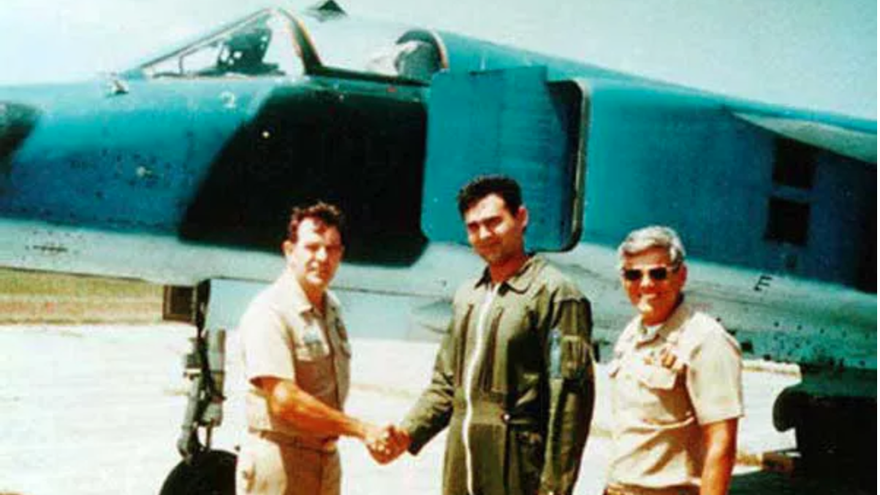
![]() 14ymedio, Reinaldo Escobar, Havana, 11 February 2022 — Like a trickle of indefinite but constant frequency, we see citizens who decide to free themselves and stop supporting the dictatorship in Cuba. The regime’s spokesmen call them deserters, whether they are doctors, athletes, artists or communicators.
14ymedio, Reinaldo Escobar, Havana, 11 February 2022 — Like a trickle of indefinite but constant frequency, we see citizens who decide to free themselves and stop supporting the dictatorship in Cuba. The regime’s spokesmen call them deserters, whether they are doctors, athletes, artists or communicators.
For those who have taken that step before – a year, five years, a decade, half a century before – they believe that those who freed themselves, have done so at the wrong time and refuse to forgive them for the years they were at the service of the regime, in complicit silence, in servile obedience or politically active in the Revolution, according to the terminological affiliation.
To give just two relevant examples that have been victims of this segregation, we can mention a general in 1987 and a deputy minister in 2002; the first stealing a plane, the second as a rafter.
Rafael del Pino (b. 1938), linked to the July 26 Movement since 1955, guerrilla fighter in the Sierra Maestra, where he became a lieutenant, and after victory, as a pilot, achieved the feat of sinking several ships in 25 combat missions and shooting down aircraft during the Bay of Pigs invasion. In May 1987 he clandestinely flew with his entire family in a small twin-engine Cessna to Florida. Since then he lashes out at the regime.
For Alcibíades Hidalgo (b. 1945), from Camagüey, his revolutionary merits led him to be head of the office of the then Minister of the Armed Forces Raúl Castro and later, in his capacity as Vice Minister of Foreign Affairs, to participate in the peace talks in Angola. He fell from grace and was demoted to director of the Trabajadores newspaper. In 2002 he arrived in Miami on a raft. As far as we know, he works at Radio Martí.
Added to the list are artists committed to the regime at the time (such as Osvaldo Rodríguez or Ramoncito Veloz), a long list of athletes who swore allegiance to the Revolution (Fredy Cepeda, the Gourriel brothers, Víctor Mesa), intellectuals (such as Cabrera Infante, Jesús Díaz or Zoé Valdés), scientists (such as Armando Rivero, founder of Cuban robotics) and anonymous company directors, Party members, cultural cadres, journalists, State Security or intelligence agents and, from then, the neighborhood informers.
What is the date – many people ask – when freeing oneself or “defecting” is meritorious? And on the other hand, who has the right to throw the first stone, to set himself up as a judge to condemn someone who was a prisoner of circumstances?
How much guilt must he who in the 1960s taught literacy, fought in Girón or Escambray, who helped to seize a property in the Revolutionary Offensive, who cut sugarcane in 1970 or planted coffee in the Cordón de La Habana, who participated in the repudiation rallies of 1980, the one who sang, recited or danced in the Anti-Imperialist Platform at the end of the 90s, the one who in the first half of the 2010s became a social worker in the midst of the Battle of Ideas?
How do you measure the guilt of everyone who out of foolishness — foolishness or pure survival instinct — applauded, raised their hands to approve some atrocity, even wanted to stand out as the fiercest, the purest of Fidelistas.
What price will those who did not take to the streets on July 11, 2021 have to pay and worse still, those who were forced or believed in the duty to repress those who marched?
Once freed from the threat of repressive forces, those who choose to drink the “Coca-Cola of oblivion” heal their wounds, make a living, start families, prosper or fail in the midst of a competitive society, and end up wondering how it is possible for Cubans who are still on the island to be so tough.
Not everyone who breaks with the regime leaves the country. Some stay here, purging their past and trying to change things and, furthermore, running the risk of being imprisoned by the dictatorship or disqualified as “light” or tolerated, by those who have never apologized for the affiliation or obedience they professed before their breakup.
The temporary borders that generate impermeable plots among those who oppose the dictatorship are artificial. Anyone who frees themselves from the tutelage of the regime, (everyone who deserts) when they want to do so, should be welcome in the opposition ranks. Strictly speaking, only the Batista supporters could say that they were against it from the beginning and, without wishing to appear exclusive, it seems to me that this trend has no future for Cuba.
____________
COLLABORATE WITH OUR WORK: The 14ymedio team is committed to practicing serious journalism that reflects Cuba’s reality in all its depth. Thank you for joining us on this long journey. We invite you to continue supporting us by becoming a member of 14ymedio now. Together we can continue transforming journalism in Cuba.
